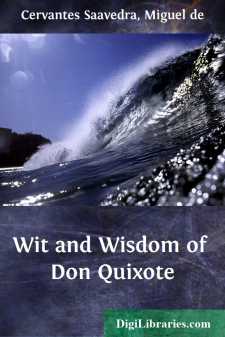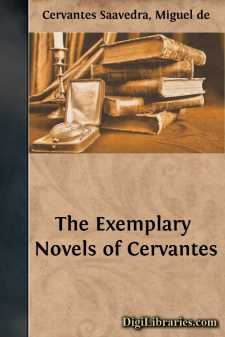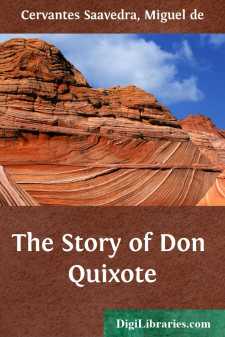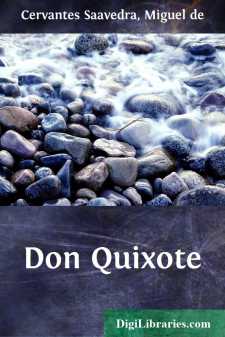Categories
- Antiques & Collectibles 13
- Architecture 36
- Art 48
- Bibles 22
- Biography & Autobiography 813
- Body, Mind & Spirit 142
- Business & Economics 28
- Children's Books 17
- Children's Fiction 14
- Computers 4
- Cooking 94
- Crafts & Hobbies 4
- Drama 346
- Education 46
- Family & Relationships 57
- Fiction 11829
- Games 19
- Gardening 17
- Health & Fitness 34
- History 1377
- House & Home 1
- Humor 147
- Juvenile Fiction 1873
- Juvenile Nonfiction 202
- Language Arts & Disciplines 88
- Law 16
- Literary Collections 686
- Literary Criticism 179
- Mathematics 13
- Medical 41
- Music 40
- Nature 179
- Non-Classifiable 1768
- Performing Arts 7
- Periodicals 1453
- Philosophy 64
- Photography 2
- Poetry 896
- Political Science 203
- Psychology 42
- Reference 154
- Religion 513
- Science 126
- Self-Help 84
- Social Science 81
- Sports & Recreation 34
- Study Aids 3
- Technology & Engineering 59
- Transportation 23
- Travel 463
- True Crime 29
Wit and Wisdom of Don Quixote
Categories:
Description:
Excerpt
CERVANTES.
A BIOGRAPHICAL SKETCH.
The most trivial act of the daily life of some men has a unique interest, independent of idle curiosity, which dissatisfies us with the meagre food of date, place, and pedigree. So in the "Cartas de Indias" was published, two years ago, in Spain, a facsimile letter from Cervantes when tax-gatherer to Philip II., informing him of the efforts he had made to collect the taxes in certain Andalusian villages.
It is difficult, from the slight social record that we have of Cervantes, to draw the line where imagination begins and facts end.
Miguel de Cervantes Saavedra, the contemporary of Shakspeare, Galileo, Camoens, Rubens, Tasso, and Lope de Vega, was born obscurely and in poverty, but with good antecedents. His grandfather, Juan de Cervantes, was the corregidor, or mayor, of Ossuna, and our poet was the youngest son of Rodrigo and Leonora de Cortiños, of the Barajas family. On either side he belonged to illustrious houses. He speaks of his birthplace as the "famous Henares,"—"Alcala de Henares," sometimes called Alcala de San Justo, from the saint San Justo having there suffered martyrdom under the traitor Daciamos. The town is beautifully situated on the borders of the Henares River, two thousand feet above the level of the sea.
He was born on Sunday, October 9, 1547, and was baptized in the church of Santa Maria la Mayor, receiving his name on the fête day of his patron Saint Miguel, which some biographers have confounded with that of his birthday.
We may be forgiven for a few words about Alcala de Henares, since, had it only produced so rare a man as was Cervantes, it would have had sufficient distinction; but it was a town of an eventful historical record. It was destroyed about the year 1000, and rebuilt and possessed by the Moors, was afterwards conquered by Bernardo, Archbishop of Toledo. Three hundred years later it was the favorite retreat of Ximenes, then Cardinal Archbishop of Toledo, who returned to it, after his splendid conquests, laden with gold and silver spoil taken from the mosques of Oran, and with a far richer treasure of precious Arabian manuscripts, intended for such a university as had long been his ambition to create, and the corner-stone of which he laid with his own hands in 1500. There was a very solemn ceremonial at the founding of this famous university, and a hiding away of coins and inscriptions under its massive walls, and a pious invocation to Heaven for a special blessing on the archbishop's design! At the end of eight years the extensive and splendid buildings were finished and the whole town improved. With the quickening of literary labor and the increase of opportunities of acquiring knowledge, the reputation of the university was of the highest.
The cardinal's comprehensive mind included in its professorships all that he considered useful in the arts. Emulation was encouraged, and every effort was made to draw talent from obscurity. To this enlightened ecclesiastic is the world indebted for the undertaking of the Polyglot Bible, which, in connection with other learned works, led the university to be spoken of as one of the greatest educational establishments in the world....





